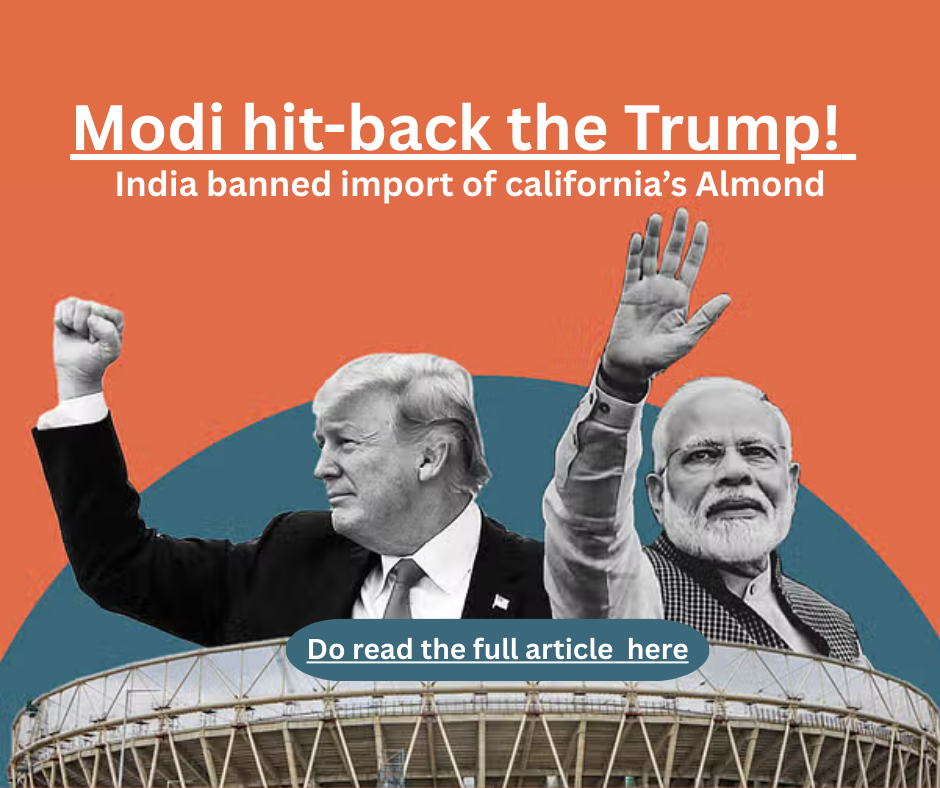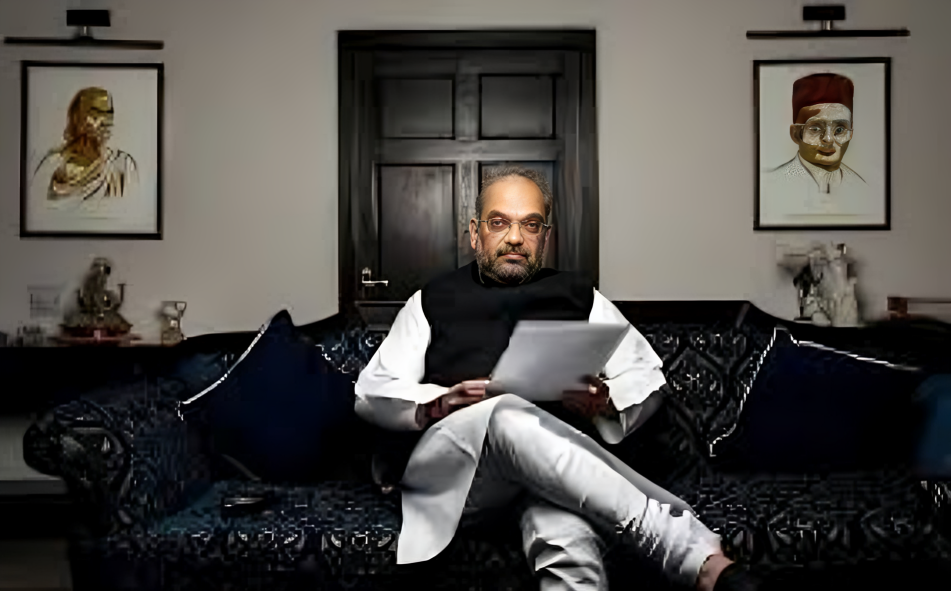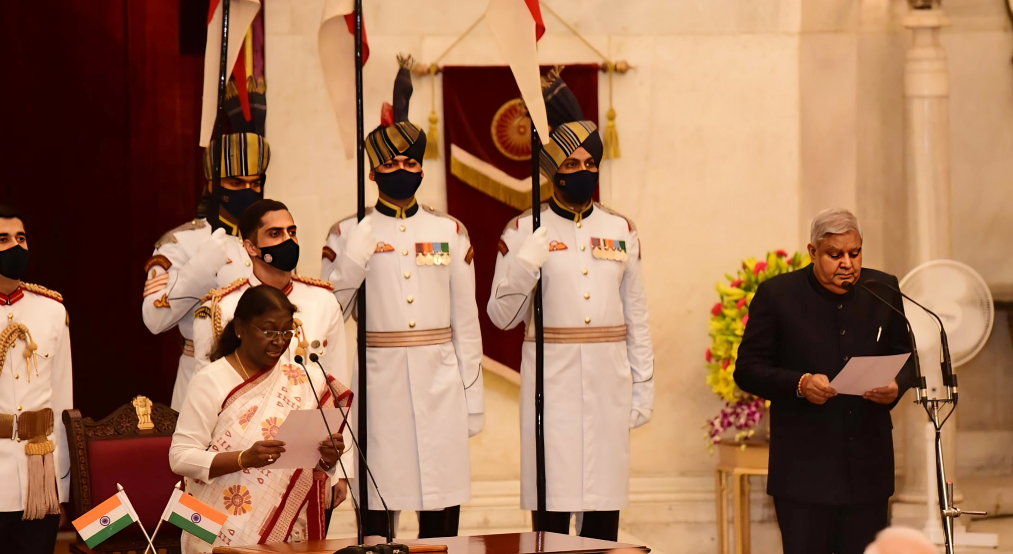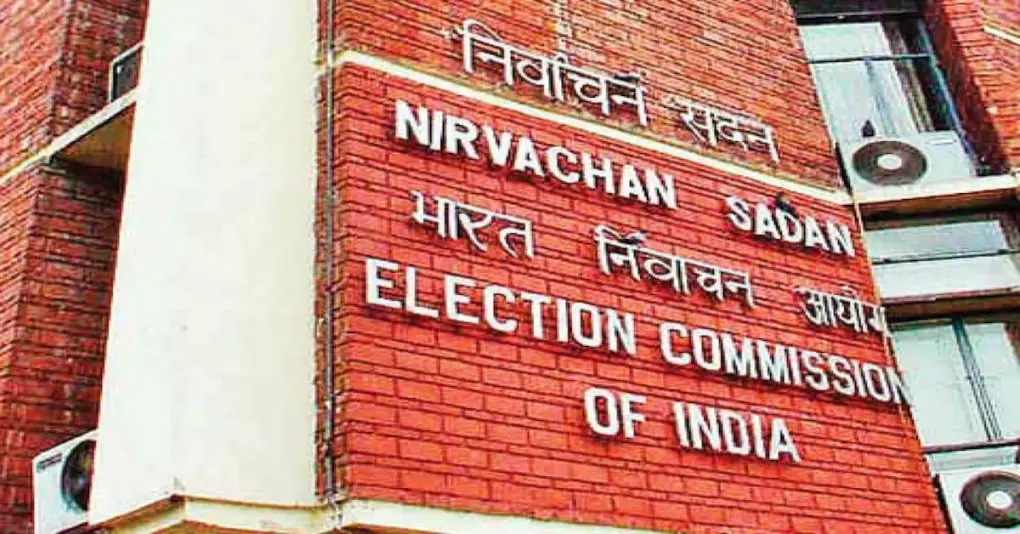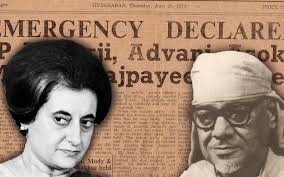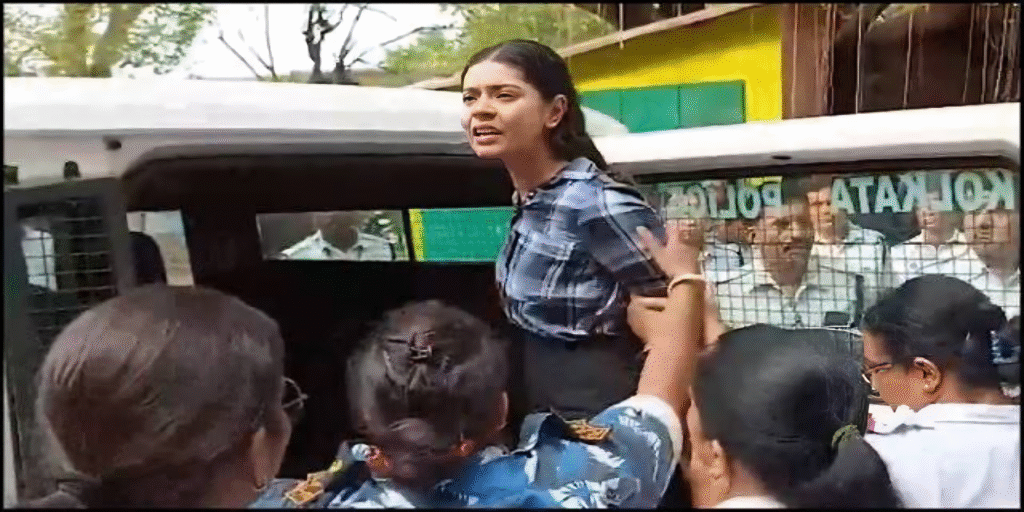Navigating the sudden departure of Vice President Dhankhar on July 21, 2025, and its far‑reaching impact on Indian politics and parliamentary procedure.
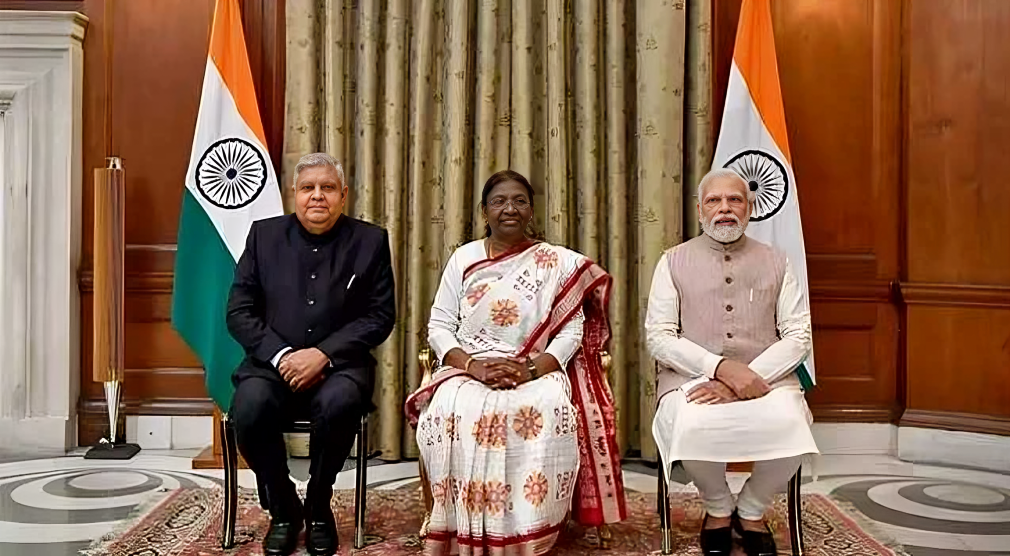
Left side Vice President Jagdeep Dhankhar, Centre Hon’ble President of India Droupadi Murmu, Right side Prime Minister Narendra Modi
On July 21, 2025, India witnessed a dramatic political shake‑up when Vice President Jagdeep Dhankhar formally resigned on grounds of health. His resignation letter, addressed to President Droupadi Murmu, cited medical advice and immediate priority for health care (Hindustan Times, Reuters). Coming on the opening day of the Monsoon Session of Parliament—with Dhankhar performing his Rajya Sabha duties just hours earlier—his departure left many in shock, and prompted questions about both institutional functioning and the evolving dynamics of Indian politics.
Facts and Timeline of the Resignation
Dhankhar’s resignation was submitted on July 21, 2025, and took immediate effect (The Indian Express). The document was terse and formal: “To prioritise health care and abide by medical advice, I hereby resign as the Vice President of India, effective immediately, in accordance with Article 67(a) of the Constitution.” (Reuters). Notably, he conveyed deep appreciation to President Murmu, Prime Minister Modi, and members of both Houses for their cooperation and support throughout his term (The New Indian Express).
Earlier that day, Dhankhar had administered oaths to new Rajya Sabha members and presided over a business advisory committee meeting, giving no visible hint of personal distress (The Indian Express). Parliament was taken by surprise; his office was even scheduled for an official visit to Jaipur on July 23, underscoring the abruptness of the announcement (The Indian Express).
Following his resignation, Deputy Chairperson Harivansh Narayan Singh (JD(U)) stepped in to preside over the Rajya Sabha until a new Vice President can be elected (The Economic Times). As per the Vice‑Presidential Election Rules, the Election Commission must conduct a new election “as soon as possible,” although no fixed deadline like that for the President exists (The Indian Express).
Stated and Perceived Reasons Behind the Resignation
Health Concerns:
The official explanation cites “medical advice” and the need to “prioritize health”—understandable given Dhankhar’s recent health emergencies. In March, he underwent angioplasty at AIIMS Delhi, admitted to critical care, followed by a fainting episode at a university event in Uttarakhand (Indiatimes, Vijay Karnataka). These episodes lend some credibility to his claim, though exact medical details were not made public (Indiatimes).
Surprise Element: Opposition figures including Jairam Ramesh and RJD’s Sudhakar Singh described their interactions with Dhankhar earlier that day as “nothing unusual,” stating he appeared his usual self during routine proceedings (The Times of India, The Indian Express). Senior leaders expressed disbelief, saying the announcement was sudden and lacking prior indication (The Economic Times).
Political Speculation: The timing—coinciding with the Parliament session’s first day and right after an impeachment notice against a judge was acknowledged in Rajya Sabha—fueled speculation about hidden motives (The Times of India, The Indian Express). Economic Times and other outlets reported that many viewed the resignation as “more than illness,” hinting at political undercurrents within the ruling ranks (The Indian Express).
Reactions Across the Political Spectrum
Opposition Response
Congress, RJD, Shiv Sena (UBT), and others reacted with surprise and skepticism. Jairam Ramesh remarked that Dhankhar showed no signs of serious illness during their exchange (The Times of India, The Indian Express). Sudhakar Singh called it “political distress” and suggested that things were “more than meets the eye” (The Indian Express). Many opposition figures urged for transparency and suggested that the Prime Minister should address the nation with fuller details (The Economic Times, The Indian Express).
BJP and NDA’s Position
The ruling alliance initially remained silent, then moved into internal discussions to decide the next nominee, with names like Harivansh being considered (Hindustan Times). BJP spokespersons offered respectful gratitude for Dhankhar’s constitutional service but did not challenge the health-based explanation (Reuters).
Others’ Reactions
MP P. Sandosh Kumar and Shiv Sena’s Anand Dubey questioned the precise timing of the resignation, arguing it was odd for such a critical juncture in Parliament (The Economic Times, The Times of India).
Constitutional Framework: Role and Succession
- Article 63‑67 establish the office, Chairmanship of Rajya Sabha, succession to the President in case of vacancy, and resignation procedures (The Economic Times).
- Article 67(a) allows voluntary resignation addressed to the President (The Indian Express).
- Article 91 provides for Rajya Sabha’s Deputy Chairperson to step in when the position is vacant (The Economic Times).
- Article 66 lays out the election process through an electoral college of both houses using proportional representation (The Indian Express, The Economic Times).
India has seen only three mid‑term resignations of Vice Presidents: VV Giri, RV Venkataraman, and now Jagdeep Dhankhar (The Indian Express). In those prior cases, the resignations were tied to ambitions for higher office; Dhankhar’s appears motivated mainly by health, though for some, political elements linger (The Indian Express, The Times of India).
The Election Commission must hold a new Vice‑Presidential poll by around September 19, 2025, within 60 days of the vacancy (The Economic Times). Until then, Harivansh will function as ex‑officio Chairman of Rajya Sabha (The Indian Express).
Political Science Perspective on the Vice‑Presidential Office
India’s Vice President has a dual mandate: executive standby and parliamentary neutrality. Unlike the U.S. Vice President, who often drives policy, India’s role is constitutionally restrained—Chairing Rajya Sabha while being ready to act as President if needed (Wikipedia, The Indian Express).
The resignation underlines the constitutional mechanisms for mid‑term changes, reflecting India’s ability to uphold democratic procedure. Yet, the convergence of health crisis, political timing, and strategic seat vacancy highlights the fragility of such positions in electoral politics.
Current Political Context and Implications
Federal Dynamics and NDA Composition
After losing its full majority in the 2024 Lok Sabha elections (BJP won 240, NDA 293), PM Modi leads a coalition-dependent government (Wikipedia, The Economic Times). The Advisor’s exit creates an extra political layer in managing these alliances during the election of the new Vice President.
Opposition Reinvigoration
Buoyed by unexpected seat gains in 2024, the opposition INDIA bloc is pushing harder on accountability and institutional reviews (Wikipedia). Dhankhar’s exit adds momentum to ongoing political theatre around the Rajya Sabha’s functioning and the upper house’s role in legislative scrutiny.
Legislative Innovation and Judiciary Oversight
Recent months have also seen an active judiciary pushing back on executive actions, renewing debates about institutional autonomy (Wikipedia). With Vice President Dhankhar gone, Parliament’s leadership face renewed pressure to preserve impartiality and uphold procedural order during contentious debates.
Internal BJP Transition
Alongside the Vice President vacancy, BJP is also contemplating a new party president after August 15, 2025—a period that demands careful coalition and leadership bridging (The Economic Times). The manner in which the new Vice President is selected will reflect these balancing acts.
Looking Ahead: What to Watch For
- Vice‑Presidential Election: The BJP‑led NDA is expected to nominate a candidate quickly. Harivansh, given his interim role, is reportedly a frontrunner (Wikipedia, The Economic Times).
- Opposition Strategy: INDIA bloc might either contest a candidate or strategically abstain to signal protest over possible lack of transparency in the process.
- Parliamentary Performance: The Rajya Sabha’s conduct during this interregnum will be closely watched, especially on pending bills and contentious motions.
- Health Transparency: If Dhankhar recovers, his future public role may affect debates around political office and personal wellbeing.
- Coalition Significance: How the NDA manages the vacancy will reflect its strategic balance between different partners and institutional pressures.
Conclusion
Jagdeep Dhankhar’s resignation on July 21, 2025, marks a landmark moment in India’s democratic history: a rare mid‑term departure from the Vice‑Presidential office driven by tangible health concerns yet layered with political context. His exit not only highlights constitutional procedures in action but also deepens ongoing debates around institutional independence, opposition engagement, and internal coalition dynamics.
As India moves toward selecting a new Vice President, the resulting choic—likely Harivansh or another trusted NDA leader—will serve as a litmus test of political balance. The episode reinforces how constitutional offices, parliamentary functioning, and political maneuvering are deeply interconnected in India’s evolving democracy.
References & Sources
Sources used above include credible citations from Reuters, Hindustan Times, The Times of India, Indian Express, Economic Times, NDTV, Politico, and Tribune archives:
- “Why vice president Jagdeep Dhankhar resigned? Read his full resignation letter,” Economic Times Today (The Economic Times)
- “Jagdeep Dhankhar resigns as Vice-President … citing health concerns,” Times of India (The Times of India)
- “Dhankhar’s health history … AIIMS hospitalization … fainting in Uttrakhand,” India Times (Indiatimes)
- Reuters: “India’s Vice President Dhankhar resigns due to health reasons,” July 21, 2025 (Reuters)
- Times of India: “Shock exit: Dhankhar quits as VP on first day …” (Hindustan Times)
- Economic Times: “Timing & motive: Opposition sees more than illness …” (The Economic Times)
- Indian Express: “Explained: What happens when the Vice-President resigns mid-term” (The Indian Express)
- Hindustan Times, The New Indian Express, NDTV, Indian Express coverage of resignation, letter excerpts, and constitutional notes (Hindustan Times, The New Indian Express, www.ndtv.com, The Indian Express, Wikipedia)
- Wikipedia: Dhankhar’s biography, 2024 Lok Sabha elections, and 2025 Vice Presidential election processes (Wikipedia, Wikipedia, Wikipedia)



